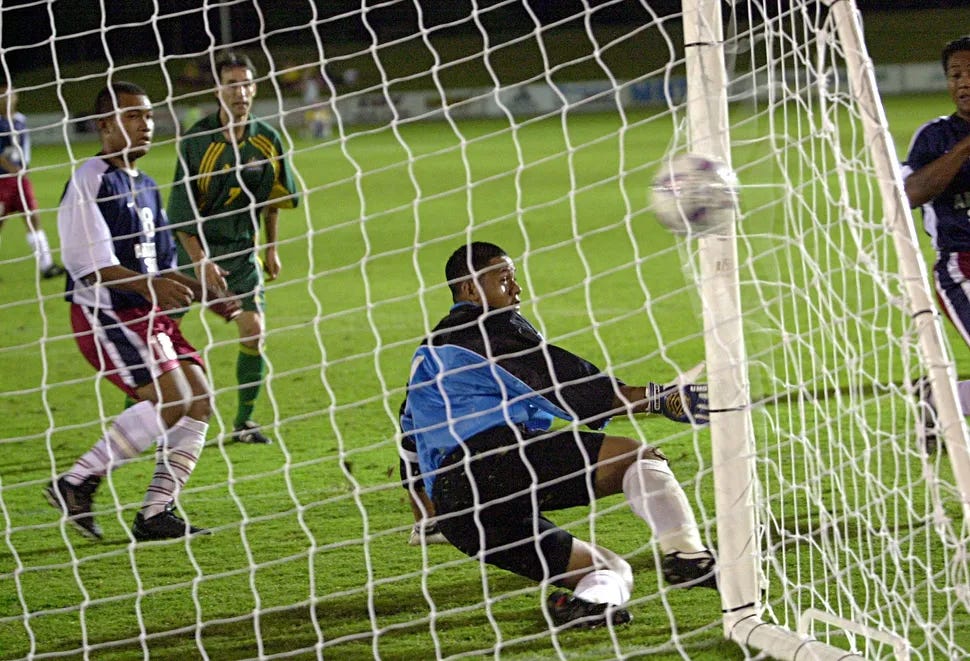‘We Don’t Need to Play These Games’
Australia’s 31-0 victory over American Samoa in 2001 caused the victor as much embarrassment as the loser, and provoked both scorn and amusement over in Britain.

Please support my work by becoming a free or a paid subscriber to the newsletter. Paid subscribers can access my full archive of posts at any time, and are vital to me being able to continue producing and expanding this newsletter.
This post is part of the ‘Research and Reflections’ occasional series, consisting of pieces based on my ongoing academic research, as well as on my musings on and responses to current affairs and personal developments.
Keep reading with a 7-day free trial
Subscribe to The Academic Bubble to keep reading this post and get 7 days of free access to the full post archives.



